李沐-权重衰退
控制模型的容量
1.参数的个数
2.每个参数值得选择范围
一、使用均方范数作为硬性限制
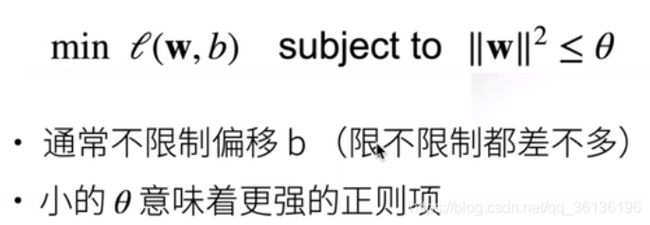
这里得subject to意味着限制得意思。
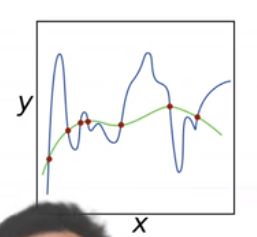
解释:限制w得取值范围,让模型不要太复杂,去拟合得像蓝色线一样。限制W范围,拟合得像绿色线,模型就不复杂了
二、使用均方范数来柔性限制
惩罚项(penalty)

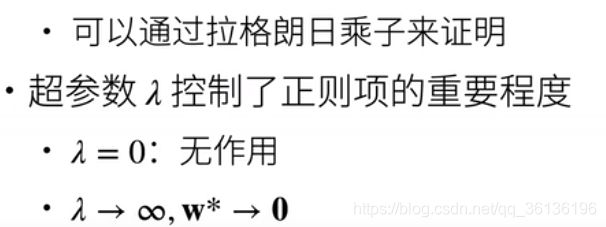
具体得
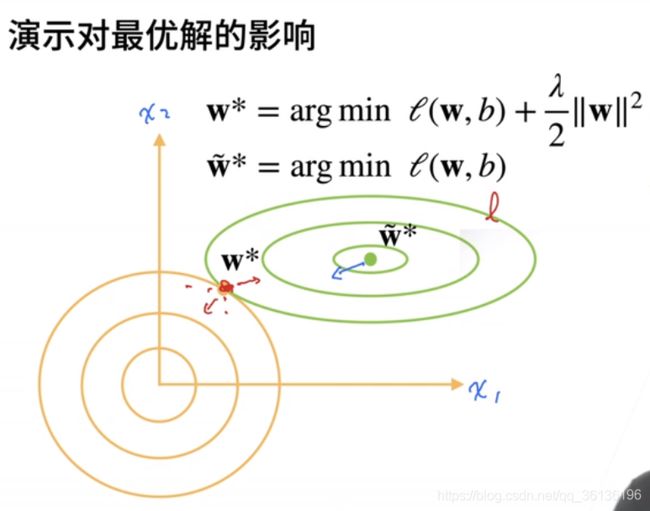

参数更新法则
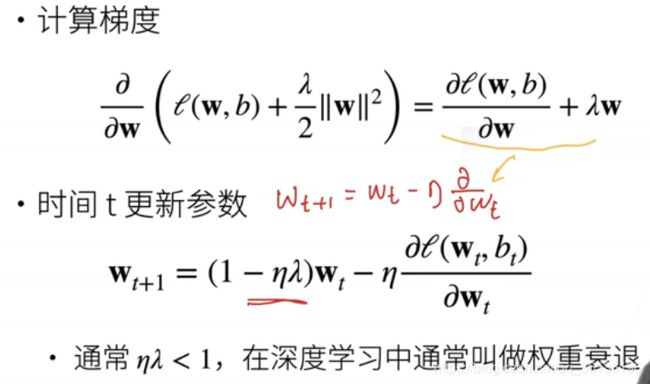
在参数更新得时候,w会衰退得。
总结

又引入了一个超参数λ
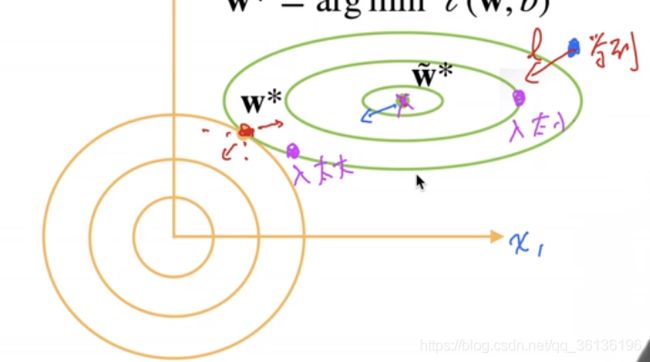
代码
%matplotlib inline
import torch
from torch import nn
from d2l import torch as d2l
n_train, n_test, num_inputs, batch_size = 20, 100, 200, 5
true_w, true_b = torch.ones((num_inputs, 1)) * 0.01, 0.05
train_data = d2l.synthetic_data(true_w, true_b, n_train)
train_iter = d2l.load_array(train_data, batch_size)
test_data = d2l.synthetic_data(true_w, true_b, n_test)
test_iter = d2l.load_array(test_data, batch_size, is_train=False)
这里,模型复杂,数据简单,训练集很小,容易过拟合

初始化权重
def init_params():
w = torch.normal(0, 1, size=(num_inputs, 1), requires_grad=True)
b = torch.zeros(1, requires_grad=True)
return [w, b]
定义惩罚项
def l2_penalty(w):
return torch.sum(w.pow(2)) / 2
训练
def train(lambd):
w, b = init_params()
net, loss = lambda X: d2l.linreg(X, w, b), d2l.squared_loss
num_epochs, lr = 100, 0.003
animator = d2l.Animator(xlabel='epochs', ylabel='loss', yscale='log',
xlim=[5, num_epochs], legend=['train', 'test'])
for epoch in range(num_epochs):
for X, y in train_iter:
with torch.enable_grad():
# 增加了L2范数惩罚项,广播机制使l2_penalty(w)成为一个长度为`batch_size`的向量。
l = loss(net(X), y) + lambd * l2_penalty(w)
l.sum().backward()
d2l.sgd([w, b], lr, batch_size)
if (epoch + 1) % 5 == 0:
animator.add(epoch + 1, (d2l.evaluate_loss(net, train_iter, loss),
d2l.evaluate_loss(net, test_iter, loss)))
print('w的L2范数是:', torch.norm(w).item())
简洁实现
weight_decay就是λ。权重衰退的超参数
def train_concise(wd):
net = nn.Sequential(nn.Linear(num_inputs, 1))
for param in net.parameters():
param.data.normal_()
loss = nn.MSELoss()
num_epochs, lr = 100, 0.003
# 偏置参数没有衰减。
trainer = torch.optim.SGD([{
"params": net[0].weight,
'weight_decay': wd}, {
"params": net[0].bias}], lr=lr)
animator = d2l.Animator(xlabel='epochs', ylabel='loss', yscale='log',
xlim=[5, num_epochs], legend=['train', 'test'])
for epoch in range(num_epochs):
for X, y in train_iter:
with torch.enable_grad():
trainer.zero_grad()
l = loss(net(X), y)
l.backward()
trainer.step()
if (epoch + 1) % 5 == 0:
animator.add(epoch + 1, (d2l.evaluate_loss(net, train_iter, loss),
d2l.evaluate_loss(net, test_iter, loss)))
print('w的L2范数:', net[0].weight.norm().item())
